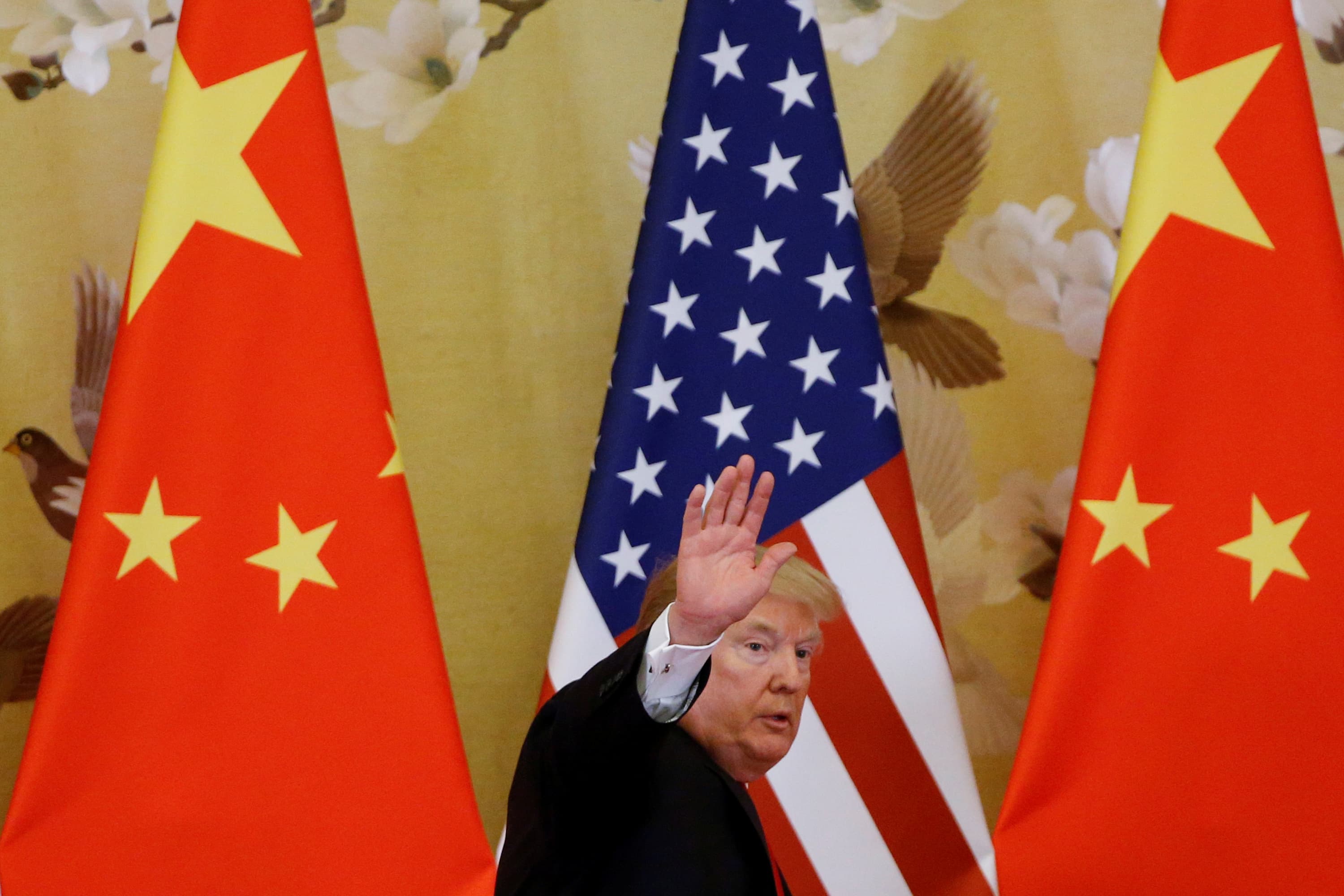President Donald Trump waves during joint statements with China's President Xi Jinping at the Great Hall of the People in Beijing, China, November 9, 2017.
Thomas Peter | Reuters
Goldman Sachs said the cost of tariffs imposed by President Donald Trump last year against Chinese goods has fallen "entirely" on American businesses and households, with a greater impact on consumer prices than previously expected.
The bank said in a note that consumer prices are higher partly because Chinese exporters have not lowered their prices to better compete in the US market.
Trump has repeatedly — and inaccurately — claimed that China will pay for tariffs imposed by the U.S.
"One might have expected that Chinese exporters of tariff-affected goods would have to lower their prices somewhat to compete in the US market, sharing in the cost of the tariffs," Goldman said.
"However, analysis at the extremely detailed item level in the two new studies shows no decline in the prices (exclusive of tariffs) of imported goods from China that faced tariffs."
In addition, US producers have "opportunistically" hiked prices in response to protection from Chinese competitors, the bank said.
Goldman also said the risk of a final round of tariffs on the roughly $300 billion of remaining imports from China has now risen to 30%.
Further escalation of the trade war could also result in a 0.4% hit to GDP, and if trade tensions instigated a sell-off in the equity market, the growth impact could worsen, Goldman said.
"Our baseline expectation is that the U.S. and China will strike a deal later this year. We think this would come in the form of a gradual, staggered reduction in tariffs on a last-in, first-out schedule," the bank said.
"There is, however, a risk of further escalation," Goldman said.
Investors have been grappling with whether the trading relationship between the U.S. and China will actually worsen.
The most recent round of trade talks, which ended on Friday with no final agreement, was overshadowed by President Donald Trump's decision to more than double tariffs on $200 billion of Chinese goods, from 10% to 25%.
White House Economic Adviser Larry Kudlow on Sunday said that Trump and Chinese President Xi Jinping will likely meet at the June G-20 summit in Japan. He said that he expects China to retaliate against the U.S., and acknowledged that the U.S. will pay for China tariffs.
Some traders are hoping that there's still time to strike a deal, citing the notion that new tariffs are not applied to Chinese exports that were already in transit before the deadline, which provides more time before tariffs are applied to goods entering the U.S.


